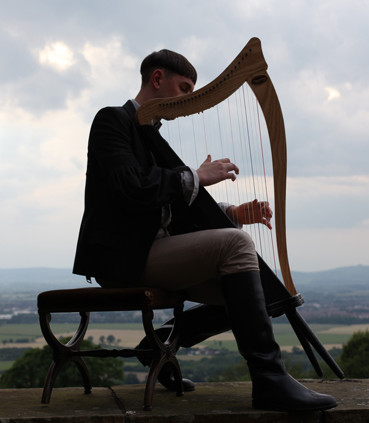Five Questions for Patrick Wolf

What did you set out to do with this anniversary album?
It’s a retrospective of thought that’s reworked to be an honest story, as if I were to tell people a story within an hour about the top sixteen experiences over the last ten years. Sundark represents the period of loneliness and solitude. And [Riverlight] is all about being involved with another person and sharing experiences with them.
Even when it’s sad, there’s a strange comfort to your music for your fans. Does it help cheer you up to write and perform when you’re sad?
Yeah, my life, in its worst moments, I think the one thing that does help is singing and writing and getting rid of those experiences into words and music. I know some people that say that they write their happiest when they’re miserable. When I was doing “Wind in the Wires,” I was in a dark place, and I think that song really helped me through that experience. With “Vulture,” I felt really dirty and horrible, and writing that song empowered me. I’m sharing that emotion with the audience, and that’s very personal.
Given this strong emotional content, were any of the songs difficult to revisit and rework?
I don’t think anything was, really. Some of my albums I found really difficult, but this was about the spirit of celebration. It was done out of pure joy. There was no record label telling me to make this album, and no time pressure. It reminded me of making Wind in the Wires, to be honest, because there was a time when there was nobody on my back telling me about watches ticking and calendars.
I actually ended up recording 21 [songs], which was weird because I went down to the studio to record maybe 10, and I just kept staying up late at night after the studio was closed and writing arrangements for the other songs. I had a real fever of excitement to reinvent songs I felt had lost something in the production in the first place.
So if the album was about reinventing these favorite songs into acoustic versions, how will you reflect that in your show?
It’s going to be like “an evening with”—like in my living room. People can ask questions and be really close to the songs. We’ve got loop, pedal tang, and it’s getting quite experimental and exciting. And there’s a grand piano every night, which is a real treat for me. And there’s no set list; it’s just kind of whatever we feel like at that time or taking requests. It’s really an opportunity to have sort of reinvented and stripped down versions of songs.
Where would you like to find yourself in 10 years?
I’d like to find myself in the same situation, feeling creatively free, liberated, and excited by the next 10 years. It’s a nice feeling to feel like you don’t know what the future’s about, but you really want to live it.




